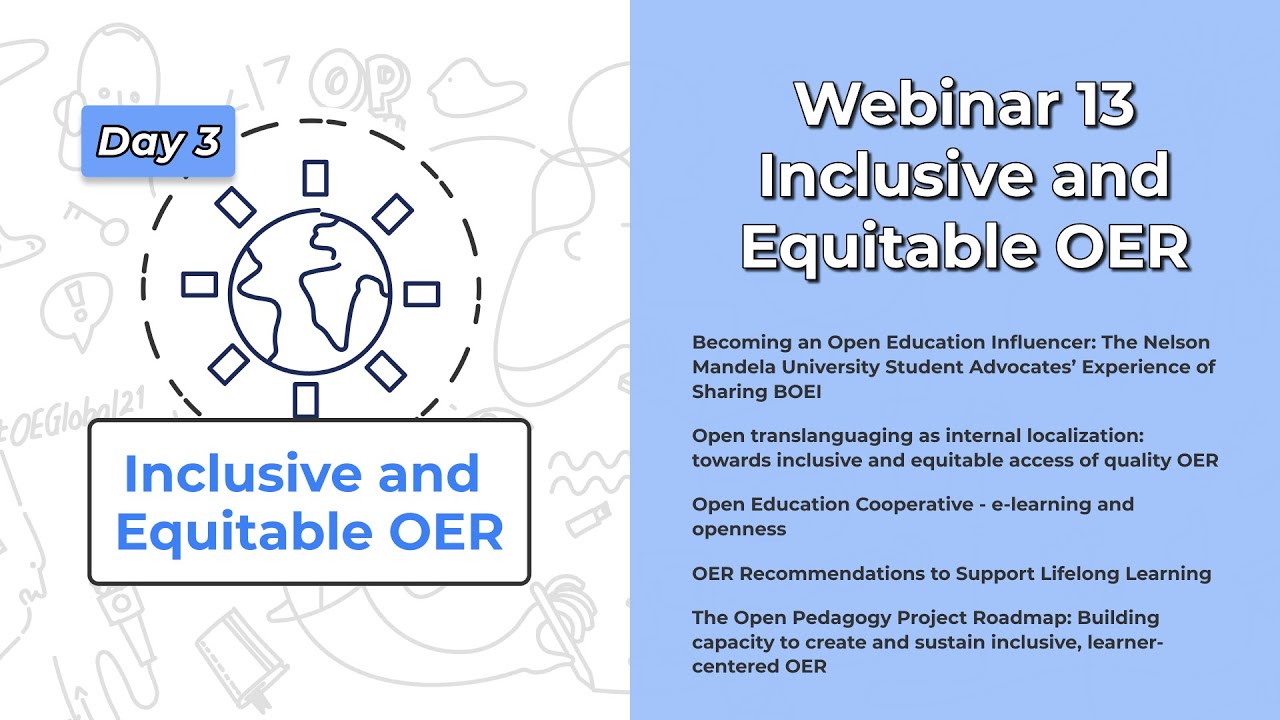Jako Olivier (North-West University)
There is a clear hegemony of English in terms of available open educational resources (OER) and this has led to the marginalization of certain language communities (cf. Cobo, 2013; Krelja Kurelovic, 2016; Oates & Hashimi, 2016). In addition, the UNESCO Recommendation on OER (UNESCO, 2019) highlights the importance of OER in marginalized languages as it encourages members states to “supporting OER stakeholders to develop gender-sensitive, culturally and linguistically relevant OER, and to create local language OER, particularly in indigenous languages which are less used, under-resourced and endangered” (UNESCO, 2019, p. 8). Within this context, this presentation aims to explore how open translanguaging as a form of internal localization can open up access to OER in different languages.
An important concept for this presentation is translanguaging and this is defined by García (2009) as an “act performed by bilinguals of accessing different linguistic features or various modes of what are described as autonomous languages, in order to maximize communicative potential” (p. 140). It is proposed that in classrooms where English OER are used that students are empowered to engage with the resource and construct equivalents in their own language. The process called open translanguaging (Olivier, 2020) involves students utilizing their individual and communal linguistic repertoires. This form of localization is considered internal localization (Olivier, 2020) as the focus is on student agency and translanguaging within the classroom.
The concept of student engagement in the creation of OER is not new. In this regard, Ossiannilsson et al. (2016) are of the opinion that the “collective interactive processes between individuals within frameworks of contextualization shape the process of learning, that is, how to learn, change, construct, and relate to enormous amounts of information in order to meet learners’ expectations and needs in a meaningful way” (p. 163). Similarly, Lane (2009) and Casserly and Smith (2008) emphasized the role of students as creators of OER. But here the focus is on linguistic agency and especially control as according to Blessinger and Bliss (2016) “[o]pen education goes beyond access: it is designed for the agency of students and teachers and affords them increased control of content and technology” (p. 14).
This presentation is guided by the following questions:
- What would open translanguaging as a form of internal localization involve?
- What practical steps would open translanguaging involve?
In answering these questions, this presentation provides a short overview of aspects pertinent from the literature and reports on practical steps for further implementation based on a literature review and engagement with students involved in open translanguaging practices. To this end, qualitative research was conducted with university students training as African language teachers in order to draw on their expertise to create resources in their own mother tongues for the purposes of sharing them openly. This qualitative study involved analysis of OER artefacts, reflections by students and semi-structured interviews.
The presentation concludes by presenting a broad framework for open translanguaging as internal localization as well as guidelines for implementation in other contexts.
Extended abstract: OE_Global_2021_paper_77.pdf 📄
Webinar Information
This presentation is part of Webinar 13 Inclusive and equitable OER taking place in your local time → .
Webinar Access (registered conference participants only):
![]()
![]() Go to Webinar 13
Go to Webinar 13
UNESCO OER Action Area: Inclusive and equitable OER
Language: EnglishSee the other presentations that take place in this webinar.
Presentation Recording
Participate
Before the webinar the authors will be asked to reply below with links to their presentation materials, related videos, and other relevant links, as well as prompts for discussion here.
For anyone that missed the live session, an archive will be posted here as soon as possible.
Conference participants are urged also to reply below with questions, comments for the presenters or to share related resources.
